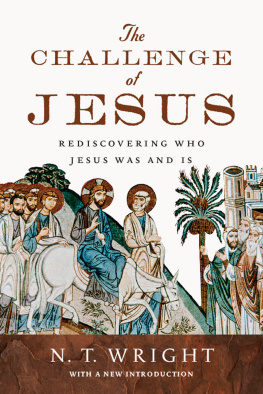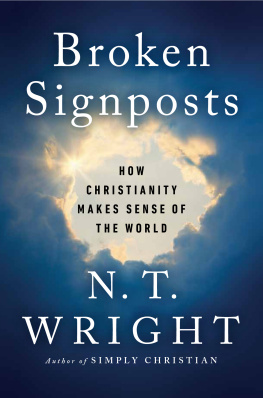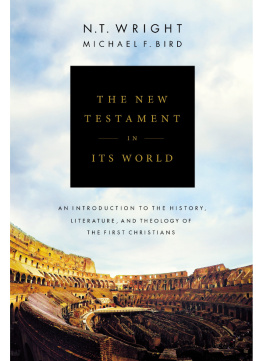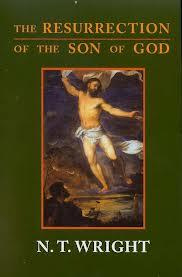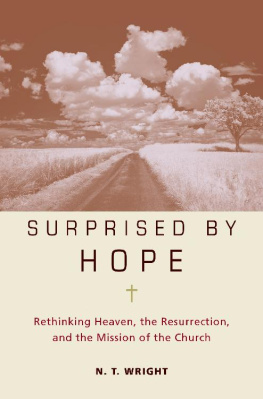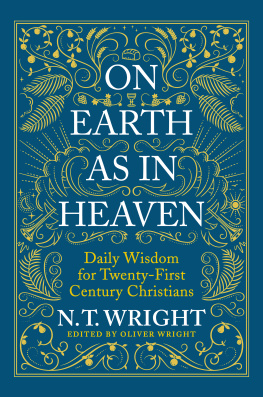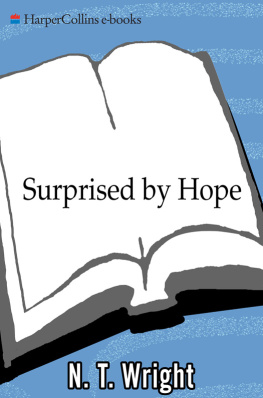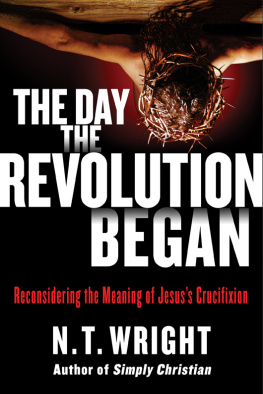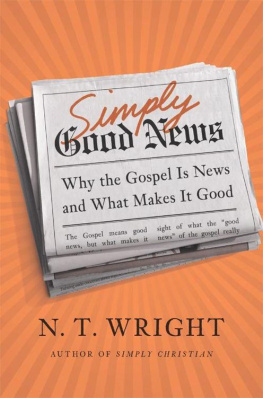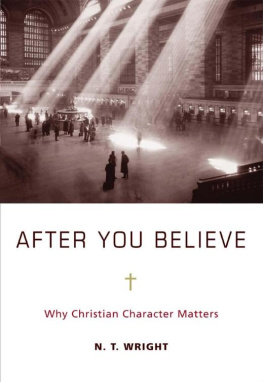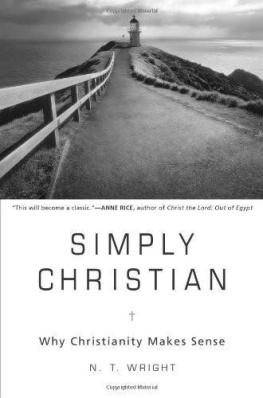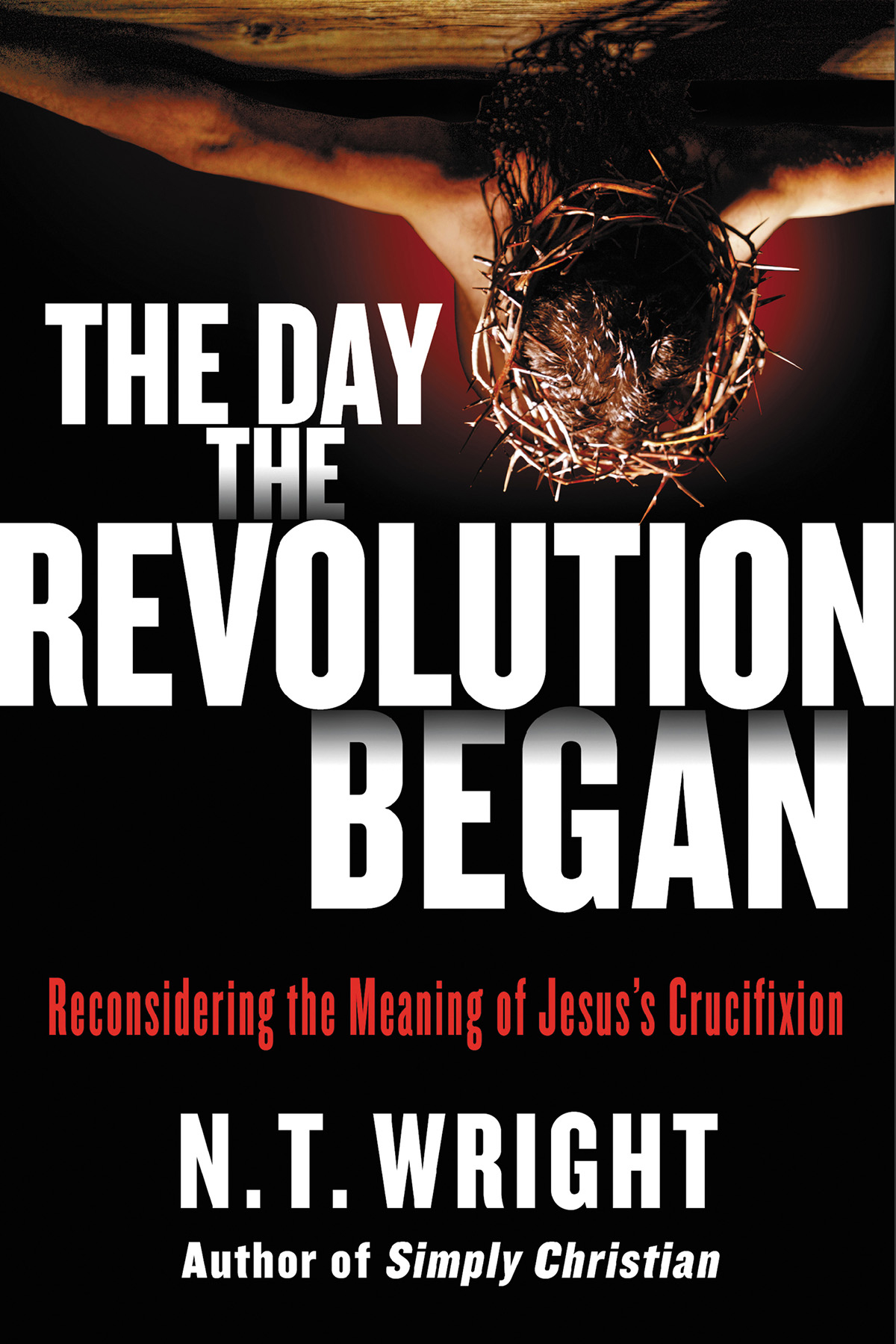N. T. Wright - The Day the Revolution Began: Reconsidering the Meaning of Jesuss Crucifixion
Here you can read online N. T. Wright - The Day the Revolution Began: Reconsidering the Meaning of Jesuss Crucifixion full text of the book (entire story) in english for free. Download pdf and epub, get meaning, cover and reviews about this ebook. year: 2016, publisher: HarperOne, genre: Religion. Description of the work, (preface) as well as reviews are available. Best literature library LitArk.com created for fans of good reading and offers a wide selection of genres:
Romance novel
Science fiction
Adventure
Detective
Science
History
Home and family
Prose
Art
Politics
Computer
Non-fiction
Religion
Business
Children
Humor
Choose a favorite category and find really read worthwhile books. Enjoy immersion in the world of imagination, feel the emotions of the characters or learn something new for yourself, make an fascinating discovery.
- Book:The Day the Revolution Began: Reconsidering the Meaning of Jesuss Crucifixion
- Author:
- Publisher:HarperOne
- Genre:
- Year:2016
- Rating:4 / 5
- Favourites:Add to favourites
- Your mark:
The Day the Revolution Began: Reconsidering the Meaning of Jesuss Crucifixion: summary, description and annotation
We offer to read an annotation, description, summary or preface (depends on what the author of the book "The Day the Revolution Began: Reconsidering the Meaning of Jesuss Crucifixion" wrote himself). If you haven't found the necessary information about the book — write in the comments, we will try to find it.
The renowned scholar, Anglican bishop, and bestselling author widely considered to be the heir to C. S. Lewis contemplates the central event at the heart of the Christian faithJesus crucifixionarguing that the Protestant Reformation did not go far enough in transforming our understanding of its meaning.
In The Day the Revolution Began, N. T. Wright once again challenges commonly held Christian beliefs as he did in his acclaimed Surprised by Hope. Demonstrating the rigorous intellect and breathtaking knowledge that have long defined his work, Wright argues that Jesus death on the cross was not only to absolve us of our sins; it was actually the beginning of a revolution commissioning the Christian faithful to a new vocationa royal priesthood responsible for restoring and reconciling all of Gods creation.
Wright argues that Jesus crucifixion must be understood within the much larger story of Gods purposes to bring heaven and earth together. The Day the Revolution Began offers a grand picture of Jesus sacrifice and its full significance for the Christian faith, inspiring believers with a renewed sense of mission, purpose, and hope, and reminding them of the crucial role the Christian faith must play in protecting and shaping the future of the world.
N. T. Wright: author's other books
Who wrote The Day the Revolution Began: Reconsidering the Meaning of Jesuss Crucifixion? Find out the surname, the name of the author of the book and a list of all author's works by series.


